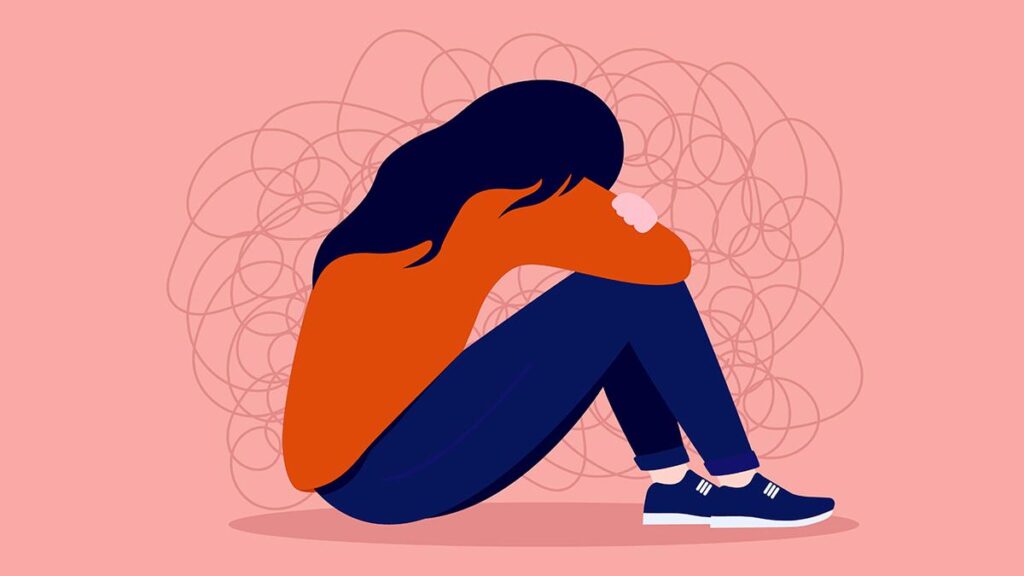
People in general are more aware now in terms of both physical and mental health due to the widespread dissemination of information on the internet, say doctors.
| Photo Credit: Getty Images/iStockphoto
Have you ever seen a list of symptoms on social media and thought you had a mental disorder? It turns out that many people especially youngsters, have begun diagnosing themselves with mental health disorders after checking out symptoms on social media or through internet search engines.
Both psychologists and psychiatrists in Bengaluru say they have noticed an increase in the number of patients who walk into their clinics with such diagnoses. Anxiety, depression and Attention Deficit Hyperactivity Disorder (ADHD) are some commonly self-diagnoses in such patients.
“We see many young adults, specifically in their 20s or early 30s, coming in with information they have derived from social media. For instance, they say things like, “I procrastinate, so I have ADHD. Medical terms are very loosely used on the internet and people see these broad, vague, non-specific criteria and diagnose themselves,” said Arohi Vardhan Child and Adolescent Psychiatrist at Cadabams Hospitals.

Awareness on the rise
In a country like India, where speaking about, or seeking help for mental health issues has been taboo and stigmatised for a long time, doctors believe that celebrities coming out and speaking about their mental health issues has led to greater awareness and openness, and may have led to more people trying to identify their own issues.
“People, in general, are more aware now in terms of both physical and mental health due to the widespread dissemination of information on the internet. One in five persons usually suffers from either anxiety or depression and while these problems existed in society for a long time, there was a lot of stigma around it. It is evident in literature that when there is more awareness in the community, people reach out for help more and that leads to better outcomes,” says Senthi Reddi, professor of psychiatry at NIMHANS.
He added, “A lot of famous people have spoken about their disorders, including learning disabilities and this has been helpful in starting a conversation around mental health. The fact that people are coming in and seeking help is a good thing, as there have been some changes even in the classification of diseases recently. It has been recognised that there is an overlap of disorders and when it comes to ADHD, autism and similar diseases, it is difficult to compartmentalise, and it is important to identify those who are struggling across the spectrum and not just the ones struggling with severe symptoms.”

The ‘IDIOT’ syndrome
While being largely appreciative of the fact that people are seeking help, doctors have also noticed that a chunk of such patients tend to convince themselves that they have a specific disorder or that medicines have side effects. This sometimes leads to the development of the infamous ‘Internet Derived Information Obstructing Treatment (IDIOT) syndrome, doctors have observed.
“While patients may have some features of a disorder, it should be decided by a professional as to whether they actually have that disorder. But some patients decide that they have a specific disorder and seek specific treatment. It is very difficult to convince them that their symptoms indicate a different disorder. We usually evaluate them in the first few sessions and then tell them what the core disorder is. Then, most people are very understanding,” Dr. Vardhan said.
Similar issues were also flagged by Shashidhar Bilagi, a practising psychiatrist in Bengaluru. “Most people seek information on the internet and just go to a therapist. However, for severe disorders, it is very important to consult psychiatrists. When it comes to medicines especially, there is a lot of misconception and wrong information on the internet about side effects. Patients refuse to take these medicines and suffer from severe disorders. To reduce the stigma, they go on the internet, but fail to seek the right kind of treatment. It is important that patients do not rely on the internet for help,” he said.
Published – February 15, 2025 06:44 am IST

